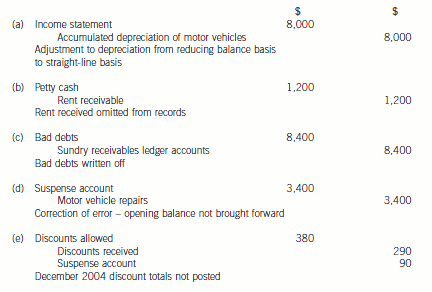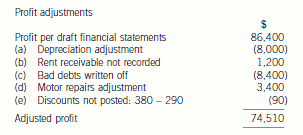为你详细解答!该不该申请ACCA免考,优缺点是什么
发布时间:2020-02-14
众所周知,ACCA资格与很多会计资格证书或者具高校的相关专业都有一定的互认协议。根据协议,ACCA将提供1-9门不等的科目免试。那么我们该不该申请免考资格?免考都有什么利弊呢?赶快跟随51题库考试学习网来看看具体内容吧。
一般不建议免考,因为ACCA的考试是由基础到深入循序渐进,如果免考了基础又不好,到后面很难进行的,我们来看看免考的优点和缺点吧;
免试优点:
首先考试科目的通过率高低不定,免考不用担心通过率问题,减轻了一部分的考试压力,可以更好投入到后面的学习。其次可以直接参加后面阶段的考试,加快了学习的进程。
免考的缺点:
首先部分免考科目是机考,免考的话就少了体验机考的机会,其次刚开始接触ACCA就不参加考试,后面难适应考试的氛围,另外申请免考,可能会因为免考对教材和考试不熟悉导致免考科目的基础不牢,连累后面的考试。
最后,补充一点:如果想要申请牛津布鲁克斯大学的学士学位,是必须放弃FR/AA/FM免试机会!
会计ACCA的就业前景:需求大
第一、从数量上来说,ACCA相对于其他专业人士的数目来说,人数稀少,但需求量大。ACCA会员目前在国内尚少,而作为高层管理高端型人才,以及越来越多的企业趋于国际化全球化的大变革中,企业对于ACCA的需求量是极大的。
会计ACCA的就业前景:英语优势
第二、从语言上来说,ACCA是纯英文教材与考试,优势明显。
尽管由于ACCA的纯英文教材和纯英文考试使得很多中国学生有些却步,然而也正是因为有纯英文这个门槛,使得ACCA的优势凸显。对于趋于国际化全球化的国内企业,一方面,企业做大就需要上市,通晓其他的会计制度以及税法商法的ACCA就很容易驾驭,帮助企业按照不同需求来做不同的上市准备。另一方面,即便企业没有做大到需要上市,但是对于死守国内市场已不是发展的现状,走出国门,做国外市场或者与外资企业合作就成了必经之路。在审核企业对于国外市场的入围资格以及企业的英文财务报表及报告是否符合外企合作条件,这些文件的制作以及审核对于ACCA来说是驾轻就熟的。
会计ACCA的就业前景:职业发展
第三、从个人职业发展来说,ACCA属于宏观统筹型人才。
相对于传统会计,ACCA更偏重于管理以及统筹、预测及规划企业走向及企业未来发展。这对于中国传统的应试教育来说是个非常好的互补,在获取知识用以解决实际问题这方面对于传统教学教育出来的学生是一次拓展思维训练的机会。调查中发现,在招聘网站中,大部分要求具有ACCA资格的职位有财务总监(CFO)、总经理助理、董事长助理以及首席财务官。这些职位要求应聘者不仅需要计算财务方面的专业知识,还需要有对于财务分析、部门配合、以及做出专业的报告让非财务人员理解并执行的能力。且多数外企要求CFO需具备中英文两种语言能力,这对于中国学生来说也是极大的优势。
好的,以上就是今天51题库考试学习网为大家分享的全部内容,大家是否清楚了呢?希望本篇文章能够帮助到大家,如有其他疑问请继续关注51题库考试学习网!
下面小编为大家准备了 ACCA考试 的相关考题,供大家学习参考。
(c) Risk committee members can be either executive or non-executive.
Required:
(i) Distinguish between executive and non-executive directors. (2 marks)
(c) Risk committee members can be either executive on non-executive.
(i) Distinguish between executive and non-executive directors
Executive directors are full time members of staff, have management positions in the organisation, are part of the
executive structure and typically have industry or activity-relevant knowledge or expertise, which is the basis of their
value to the organisation.
Non-executive directors are engaged part time by the organisation, bring relevant independent, external input and
scrutiny to the board, and typically occupy positions in the committee structure.
6 Assume today’s date is 16 April 2005.
Henry, aged 48, is the managing director of Happy Home Ltd, an unquoted UK company specialising in interior
design. He is wealthy in his own right and is married to Helen, who is 45 years old. They have two children – Stephen,
who is 19, and Sally who is 17.
As part of his salary, Henry was given 3,000 shares in Happy Home Ltd with an option to acquire a further 10,000
shares. The options were granted on 15 July 2003, shortly after the company started trading, and were not part of
an approved share option scheme. The free shares were given to Henry on the same day.
The exercise price of the share options was set at the then market value of £1·00 per share. The options are not
capable of being exercised after 10 years from the date of grant. The company has been successful, and the current
value of the shares is now £14·00 per share. Another shareholder has offered to buy the shares at their market value,
so Henry exercised his share options on 14 April 2005 and will sell the shares next week, on 20 April 2005.
With the company growing in size, Henry wishes to recruit high quality staff, but the company lacks the funds to pay
them in cash. Henry believes that giving new employees the chance to buy shares in the company would help recruit
staff, as they could share in the growth in value of Happy Home Ltd. Henry has heard that there is a particular share
scheme that is suitable for small, fast growing companies. He would like to obtain further information on how such
a scheme would work.
Henry has accumulated substantial assets over the years. The family house is owned jointly with Helen, and is worth
£650,000. Henry has a £250,000 mortgage on the house. In addition, Henry has liquid assets worth £340,000
and Helen has shares in quoted companies currently worth £125,000. Henry has no forms of insurance, and believes
he should make sure that his wealth and family are protected. He is keen to find out what options he should be
considering.
Required:
(a) (i) State how the gift of the 3,000 shares in Happy Home Ltd was taxed. (1 mark)
(a) (i) Gift of shares
Shares, which are given free or sold at less than market value, are charged to income tax on the difference between the
market value and the amount paid (if any) for the shares. Henry was given 3,000 shares with a market value of £1 at
the time of gift, so he was assessed to income tax on £3,000, in the tax year 2003/04.
(iii) How items not dealt with by an IFRS for SMEs should be treated. (5 marks)
(iii) The treatment of items not dealt with by an IFRS for SMEs
IFRSs for SMEs would not necessarily deal with all the recognition and measurement issues facing an entity but the key
issues should revolve around the nature of the recognition, measurement and disclosure of the transactions of SMEs. In
the case where the item is not dealt with by the standards there are three alternatives:
(a) the entity can look to the full IFRS to resolve the issue
(b) management’s judgement can be used with reference to the Framework and consistency with other IFRSs for SMEs
(c) existing practice could be used.
The first approach is more likely to result in greater consistency and comparability. However, this approach may also
increase the burden on SMEs as it can be argued that they are subject to two sets of standards.
An SME may wish to make a disclosure required by a full IFRS which is not required by the SME standard, or a
measurement principle is simplified or exempted in the SME standard, or the IFRS may give a choice between two
measurement options and the SME standard does not allow choice. Thus the issue arises as to whether SMEs should
be able to choose to comply with a full IFRS for some items and SME standards for other items, allowing an SME to
revert to IFRS on a principle by principle basis. The problem which will arise will be a lack of consistency and
comparability of SME financial statements.
2 The draft financial statements of Choctaw, a limited liability company, for the year ended 31 December 2004 showed
a profit of $86,400. The trial balance did not balance, and a suspense account with a credit balance of $3,310 was
included in the balance sheet.
In subsequent checking the following errors were found:
(a) Depreciation of motor vehicles at 25 per cent was calculated for the year ended 31 December 2004 on the
reducing balance basis, and should have been calculated on the straight-line basis at 25 per cent.
Relevant figures:
Cost of motor vehicles $120,000, net book value at 1 January 2004, $88,000
(b) Rent received from subletting part of the office accommodation $1,200 had been put into the petty cash box.
No receivable balance had been recognised when the rent fell due and no entries had been made in the petty
cash book or elsewhere for it. The petty cash float in the trial balance is the amount according to the records,
which is $1,200 less than the actual balance in the box.
(c) Bad debts totalling $8,400 are to be written off.
(d) The opening accrual on the motor repairs account of $3,400, representing repair bills due but not paid at
31 December 2003, had not been brought down at 1 January 2004.
(e) The cash discount totals for December 2004 had not been posted to the discount accounts in the nominal ledger.
The figures were:
$
Discount allowed 380
Discount received 290
After the necessary entries, the suspense account balanced.
Required:
Prepare journal entries, with narratives, to correct the errors found, and prepare a statement showing the
necessary adjustments to the profit.
(10 marks)


声明:本文内容由互联网用户自发贡献自行上传,本网站不拥有所有权,未作人工编辑处理,也不承担相关法律责任。如果您发现有涉嫌版权的内容,欢迎发送邮件至:contact@51tk.com 进行举报,并提供相关证据,工作人员会在5个工作日内联系你,一经查实,本站将立刻删除涉嫌侵权内容。
- 2020-02-01
- 2019-07-20
- 2020-01-10
- 2020-01-10
- 2020-05-02
- 2020-01-10
- 2020-01-10
- 2020-04-21
- 2020-01-09
- 2020-04-28
- 2020-05-21
- 2020-01-10
- 2020-05-13
- 2020-04-23
- 2020-01-10
- 2019-01-09
- 2020-01-09
- 2020-04-05
- 2020-01-10
- 2021-04-24
- 2020-05-03
- 2020-03-07
- 2020-03-28
- 2021-08-29
- 2020-01-10
- 2020-04-21
- 2020-01-29
- 2020-04-30
- 2019-12-28
- 2020-04-21